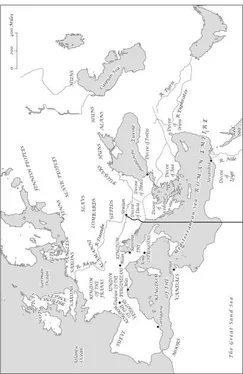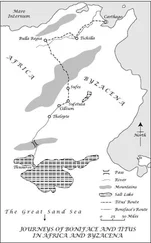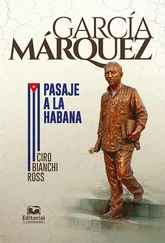Ross Laidlaw - Justinian
Здесь есть возможность читать онлайн «Ross Laidlaw - Justinian» весь текст электронной книги совершенно бесплатно (целиком полную версию без сокращений). В некоторых случаях можно слушать аудио, скачать через торрент в формате fb2 и присутствует краткое содержание. Жанр: Исторические приключения, на английском языке. Описание произведения, (предисловие) а так же отзывы посетителей доступны на портале библиотеки ЛибКат.
- Название:Justinian
- Автор:
- Жанр:
- Год:неизвестен
- ISBN:нет данных
- Рейтинг книги:4 / 5. Голосов: 1
-
Избранное:Добавить в избранное
- Отзывы:
-
Ваша оценка:
- 80
- 1
- 2
- 3
- 4
- 5
Justinian: краткое содержание, описание и аннотация
Предлагаем к чтению аннотацию, описание, краткое содержание или предисловие (зависит от того, что написал сам автор книги «Justinian»). Если вы не нашли необходимую информацию о книге — напишите в комментариях, мы постараемся отыскать её.
Justinian — читать онлайн бесплатно полную книгу (весь текст) целиком
Ниже представлен текст книги, разбитый по страницам. Система сохранения места последней прочитанной страницы, позволяет с удобством читать онлайн бесплатно книгу «Justinian», без необходимости каждый раз заново искать на чём Вы остановились. Поставьте закладку, и сможете в любой момент перейти на страницу, на которой закончили чтение.
Интервал:
Закладка:
the spat developing between their two commanders
The clash between the two generals (arising from the extraordinary rider to his commission which enabled Narses to outrank Belisarius whenever he felt it appropriate to do so) created a poisonous atmosphere of acrimony and dissent, which at times virtually paralyzed the progress of the war, and was directly responsible for the failure to relieve Milan.
B.’s capture of Ravenna in a bloodless coup
Displaying a failure of nerve that was not untypical, Justinian ordered Belisarius to abandon the siege of Ravenna (which the emperor had been led to believe was virtually impregnable) and make the best terms he could with the Goths — in case troops had to be diverted to the east in the event of Persian aggression. Italy would then be divided between the Romans, who would retain the land south of the Po, and the Goths, who would keep the rest — mainly consisting of their heartland, the Plain of Lombardy. Belisarius however, was made of sterner stuff than his emperor. Ignoring the order, he pretended to agree with a secret proposal of the Goths that he become Western emperor in return for a power-sharing deal with them. He was then allowed to enter Ravenna with his army, whereupon the Goths surrendered — only to discover that they had been tricked. Belisarius, who had no intention of honouring the deal, informed the Gothic leaders that he was occupying Ravenna in Justinian’s name and that the Ostrogothic kingdom was no more. (Gibbon suggests that Ravenna was captured late in 539, rather than 540 — the year most sources give.)
half a million put to the sword and the city razed
The population of Milan — then as now Italy’s second city — has been estimated to number c. 500,000 at the time. Displaying his usual common sense, Gibbon (in contrast to most historians) is highly sceptical about the notion of total genocide and destruction being visited on a conurbation of this magnitude. He suggests that dividing the reported number slain (300,000 males alone) by ten, and assuming that the city’s walls rather than its buildings were levelled, would give a more credible picture. Though inclined to agree with Gibbon, for dramatic reasons I have, in the story, stuck with the generally accepted version of the fate of Milan.
the Year of the Consul Basilius
After a lapse of several years, a consul, Basilius, was elected for the year 540. His diptych shows him in his consular robes, beside him — hand on his shoulder — an allegorical figure of Rome. Basilius wears a most apprehensive expression — caused by worry about the colossal expense of throwing his consular Games, or concern regarding the imminent demise of the office he represents? He was in fact to be the very last consul. ( The Cambridge Companion to the Age of Justinian suggests a date of 541 for Basilius. As, however, Gibbon gives 539 as the final consular year, I decided to split the difference and settle for 540.)
as once You did to Constantine
Justinian is referring to the famous incident — one of the most important single events in the history of Christianity, when Constantine, about to do battle with his rival Maxentius for mastery of the Roman Empire, beheld in the sky a cross (cloud formation?) — the emblem of the hitherto persecuted Christian sect. Interpreting the vision as a sign from God, he instructed his soldiers to paint the symbol on their shields. In the ensuing battle at the Milvian Bridge (still in use) outside Rome in 312, Constantine was victorious and the rest, as they say, is history. .
Khusro was contemplating ending the treaty
For dramatic reasons, I have deferred Khusro’s invasion of Syria until Chapter 21, so as not to spoil Justinian’s moment of triumph on hearing the news of the capture of Ravenna — which must have seemed to bring the Gothic War to a glorious conclusion. In fact, according to most sources, the news arriving in Constantinople of Khusro’s ‘putsch’ preceded — just — the tidings that Ravenna had fallen (March and May 540 respectively). If, however, we accept Gibbon’s argument that Ravenna in fact fell in late 539 rather than in early 540, then the order of events as I’ve presented them can stand. (See Gibbon’s footnote on the capture of Ravenna in Chapter 41 of his Decline and Fall .)
Elsewhere in Chapter 20, in order to present a reasonably coherent picture from the shifting pattern of sieges, blockades, reliefs, reductions and ‘pushes’ which constitute the main strategic events in Italy for the years 538–540 (a crucially important period in the first phase of the Gothic War), I have gone in for some pruning and telescoping without, I trust, distorting the essential facts.
Chapter 21
the age-old contest between Persia and Rome
If we broaden the term ‘Rome’ to ‘the Greeks and Romans’, and ‘Persia’ to include successively: the empire begun by Cyrus in 537 BC, the Parthian state which lasted from 246 BC to AD 218, and its successor the Sassanian Empire, then, by the reign of Justinian, the Graeco-Roman world had been at war with Persia for over a thousand years — allowing for an interregnum (329–246 BC) when the country had come under the sway of Alexander and his successors. For a time — in the 610s and 20s — it looked as if Persia might overrun the East Roman state, but in 628 the tables were turned decisively in Rome’s favour when the emperor Heraclius utterly crushed Khusro II. Then, just when it seemed that Rome had emerged the final victor. . (For the ‘Final Solution’ to the millenium-long struggle, see Afterword.)
as once we served Valerian
In AD 260, the Roman emperor Valerian, along with his 70,000-strong army was captured by the Persians, who for many years displayed his skin as a grisly trophy of war.
a legitimate claim to Justinian’s throne
This astonishing assertion was not without an element of justification. Near the end of Justin’s reign, when Khusro (the third and favourite son of the Great King, Kavad) was a young boy, plans (part of a diplomatic entente between Persia and Rome) were drawn up whereby young Khusro would be adopted by the childless Justin. The boy had actually started on the journey to Constantinople when — on the advice of hardliners, particularly the quaestor Proclus — the scheme was cancelled. Had it not been. . (It is fascinating to speculate what might have been the implications for the succession on Justin’s death, if the plan had been implemented.)
their proud Seleucid ancestors
One of the most splendid cities of the ancient world, Antioch was founded c. 300 BC by Seleucus Nicator (in honour of his father Antiochus), one of Alexander’s generals. He began the Seleucid dynasty, whose territory included most of the eastern portion of Alexander’s empire.
Antioch will rise again
‘After his [Khusro’s] return he founded, at the distance of one day’s journey from the palace of Ctesiphon, a new city, which perpetuated the joint names of Chosroes and of Antioch. The Syrian captives recognised the form and situation of their new abodes; baths and a stately circus were constructed for their use, and. . a liberal allowance was assigned to these fortunate exiles. .’ (Gibbon.) A quixotic (but staggeringly generous!) gesture by one of history’s most enigmatic and intriguing personalities. In contrast to Justinian, Khusro was motivated by pragmatism rather than idealism, and possessed both a streak of cruelty and a sense of humour — traits not shared by his great rival.
Chapter 22
thanks to the network of irrigation channels
These, once ubiquitous throughout Mesopotamia, have long fallen into disuse. As a result, most of what is now Iraq has largely reverted to desert.
Читать дальшеИнтервал:
Закладка:
Похожие книги на «Justinian»
Представляем Вашему вниманию похожие книги на «Justinian» списком для выбора. Мы отобрали схожую по названию и смыслу литературу в надежде предоставить читателям больше вариантов отыскать новые, интересные, ещё непрочитанные произведения.
Обсуждение, отзывы о книге «Justinian» и просто собственные мнения читателей. Оставьте ваши комментарии, напишите, что Вы думаете о произведении, его смысле или главных героях. Укажите что конкретно понравилось, а что нет, и почему Вы так считаете.












